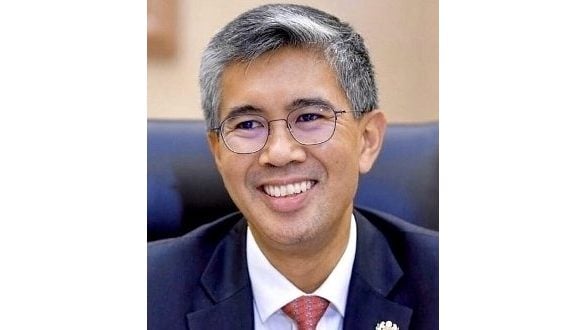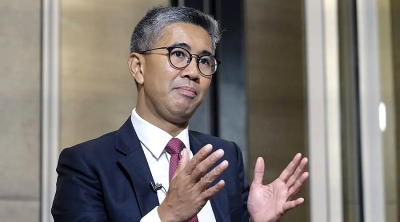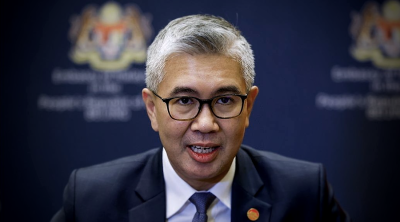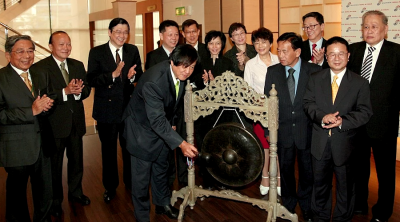
A year ago, I was given the honour to serve as Minister of Investment, Trade and Industry (MITI) in the Unity Government led by Datuk Seri Anwar Ibrahim.
I believe we hit the ground running, and one year hence, it is good to reflect on how far we have come, and what we can do better in 2024.
What really matters is disciplined execution
One of the first few things we did was to tweak our decades-old name to signal the importance of “investments” in our national economic agenda.
This telegraphs the seriousness of the government in making investments one of the key components of our next economic take-off, as it is continued investments that generate employment and business opportunities for the domestic economy.
A few days ago, we proudly announced the RM225 billion approved investments that Malaysia managed to secure from January to September 2023. This already exceeded our full-year target of roughly RM220 billion.
MITI and its agency, MIDA, worked hard on securing those numbers, but we also recognise that we need to work doubly hard to realise those investments.
The 89,495 expected job opportunities for Malaysians will be our beacon in realising that RM225 billion figure.
Further, we are determined to ensure a high realisation rate for the RM225 billion approved investments.
This year alone, many investment approvals, at both federal and state levels, were expedited through the Investment & Trade Action Coordination Committee, and the Investment Coordination Committee Meeting, both of which I personally chair.
We also fast-tracked the physical set-up of the Invest Malaysia Facilitation Centre (IMFC) at MIDA – where investors can settle many administrative matters directly with authorities such as Customs, Immigration, Inland Revenue, Department of Labour and others.
Meanwhile, for the 10 months to October 2023, trade reached RM2.18 trillion.
Mirroring the slowdown in global trade, both exports and imports were roughly 8% lower year-on-year, but partially tempered by growing exports to countries such as Brazil (up 13.5%), Nigeria (up 7.3%) and Tanzania (up 10%), to name just a few.
Kudos to our external trade arm, Matrade and its diversification strategy.
We are optimistic that exports will improve in 2024, supported by the rise in the global technology cycle, especially demand in the E&E sector.
We have been proactively leveraging on the reshoring of global supply chains, and courting investments in higher-value front-end semiconductor output, like IC design and wafer fabrication.
In a few years’ time, we hope to see the likes of Infineon, Nvidia, SkyeChip and Oppstar help our industry move up the semiconductor value chain to further entrench Malaysia firmly in the global market, of which we currently enjoy a 7-percent market share.
MITI has also been proactive in pushing the halal industry to boost exports.
Currently the world’s premier exhibition for halal goods and services, the Malaysia Halal Showcase (MIHAS) 2023 successfully registered RM3.11 billion of sales, 24% above target.
This is an exciting space to be in, and we are determined to leverage on our globally recognised halal ecosystem to capture a bigger slice of this US$5 trillion global market.
Political stability, policy clarity place Malaysia back on investors’ radar
In the many meetings that I have had with existing and potential investors in this past year, the one consistent feedback that I have received is how they value the political stability of the Unity Government.
They also cited policy clarity in the nation’s economic direction via the administration’s key frameworks such as the New Industrial Masterplan (NIMP) 2030, and National Energy Transition Roadmap.
Our international engagements have also mattered. At various international economic and media platforms, we have continuously stressed the Unity Government’s drive towards socioeconomic reforms, and how high-impact and high-quality investments will be facilitated to raise both “the ceiling” and “the floor” of the economy outlined by the Madani Economic Framework.
Cumulatively, all these initiatives have enabled us to sustain the momentum for both foreign and domestic direct investments in 2023, despite the global economic slowdown.
I can confidently say Malaysia is firmly back on the investment radar.
Priorities for 2024 to sustain momentum and build resilience
But how do we sustain this momentum? Here are three things I would like MITI to focus on for 2024 and beyond, in confronting current economic realities, as well as addressing long-term structural issues like moving up the value chain, deepening our economic complexity and ensuring that benefits of broad-based industrial growth are more equitably shared.
First, we must get a grip on the impact of artificial intelligence (AI) and other technological developments on manufacturing, and its consequent demand on skilled talent.
While NIMP2030 has kick-started projects on Integrated Circuit (IC) design, wafer fabrication, smart factories and advanced materials, there is a corresponding need to ramp up student enrolment in STEM subjects to fill up many highly-skilled positions in future.
Therefore, skilled human capital and productivity – two key issues raised by many investors – will certainly be prioritised by MITI through stronger industry-academia collaboration.
In fact, the number of high-skilled jobs and high-tech training of Malaysians are two of the key requirements for investors wishing to establish or expand their facilities in Malaysia.
Second, sustainability has become an urgent global imperative, and ESG considerations are key to building our economic resilience.
On this, MITI is revving up the embracing of ESG via various aspects of our ecosystem to achieve not just balanced growth, but also our net-zero GHG emission target by 2050.
Our efforts range from courting investments in green technology, green manufacturing and renewable energy, to ramping up EV manufacturing and adoption; from developing “green” industrial parks to hand-holding our SMEs to embrace ESG via the National Industry ESG Framework (i-ESG).
Specifically on electric mobility, sceptics said we were promoting EVs for the rich. This uninformed opinion was turned on its head with the launch of the MARiiCas scheme on 8 December 2023 to encourage the use of EV motorcycles, via rebates up to RM2,400 for citizens earning less than RM120,000 a year.
Third, disciplined execution and transparency are crucial.
The year 2024 is a pivotal year as we begin to realise early phases or expansions of various investments by global brands that we successfully attracted this year, including the likes of Amazon Web Services, Enovix, Google, MASDAR, Microsoft, Yondr, SEA Limited, Tesla, TikTok and many others.
We are also determined to see through the initiatives of our policies such as NIMP2030, National Automotive Policy, Malaysian Aerospace Industry Blueprint and i-ESG.
While attracting the right investments is important, being transparent on progress and milestones is equally key.
We had our first MITI Report Card Day on 6 December 2023, and we intend to have this quarterly in 2024 and beyond, so we can share updates of key projects.
Heavy lifting time
The year 2023 has been beset by various global challenges – from supply chain disruptions to persistent inflation and wars.
We can expect 2024 to be more challenging, with countries making up over 50% of global GDP undergoing decisive elections.
For sure, the results will have an impact on an already near-fragile geopolitical and economic landscape globally.
I strongly believe our trio of priorities will ensure Malaysia’s investment, trade and industry-scape remain resiliently competitive, regardless of what is happening in the world.
My door is always open to those who wish to share their views on what more we should do to build a more prosperous, sustainable and equitable Malaysia for all our rakyat.
MITI is taking the challenging global economic “bull” by its horns.
So, bring it on, 2024!
(Tengku Zafrul Tengku Abdul Aziz is the Minister of Investment, Trade and Industry, Malaysia.)
ADVERTISEMENT
ADVERTISEMENT






































